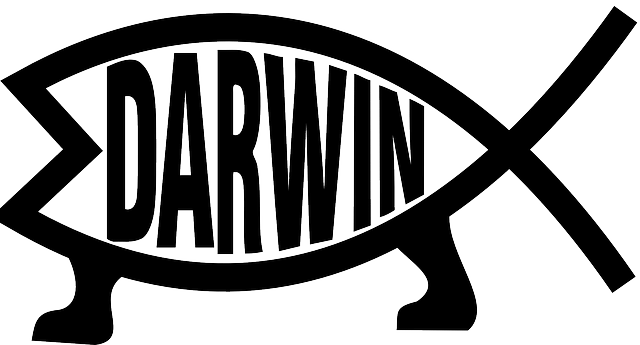


Creation and evolution. This is a controversy that goes beyond mere facts. Discover what makes the difference! Is there real evidence for either side of this controversy?”
Almost every area of science we have today was founded by a Bible believing Christian. Science owes its origins to Christianity.
The following is a summary of Chapter 3 – Something From Nothing: the Origin of the Universe from James Seegert’s book “Creation & Evolution Compatible or in Conflict.”
Science is quite incapable of proving that God does or does not exist. Since scientists cannot directly prove or disprove the existence of God, all they can really do is try to argue against the existence of a “god” as they define Him.
Science is all about interpretation. All scientist, whether they are evolutionists or creationists, have the exact same facts. The main difference is how they look at (or interpret) the facts or evidence, which is strongly influenced by their worldview. Often the same facts are claimed as evidence by each side.
Creation and Evolution — A Singularity
Most scientists believe our universe is expanding and that there was a starting point (a singularity). A legitimate scientific reason to believe that the universe had a beginning is an appalling thought to many scientists who realize it would be difficult to speak of a “beginning without a beginner” (or more scientifically, an effect without a cause).
Since “singularity” or a starting point is outside the reach of true science and most scientists don’t want to invoke God as part of the equation or the cause, the issue of how we get something from nothing is largely ignored within the scientific literature.
A singularity is what we call a “thermodynamic dead end.” It’s not going anywhere. It cannot get itself out of this state. It’s stuck. Something else has to occur to get it off of dead center, so to speak. This “something else” is what they call the “big bang.”
The big bang isn’t theory that deals with how we got “something from nothing”, but how we got “something from something.” The big bang doesn’t even come into the picture until after we already “have something” — the “singularity” – the initial starting point.
In reality, the big bang merely attempts to explain how this singularity could have morphed into the universe that we are a part of today.
Creation and Evolution — Big Bang Not A Well-Supported Scientific Theory
Contrary to what most people assume, the big bang theory is not a well-supported scientific theory, although most scientists operate on the assumption that it is. We need to keep in mind that most scientists do not have backgrounds in astronomy and physics and have never really done any studying in cosmology.
At least 218 scientists and engineers, 187 independent researchers and 105 others in 2008 signed an open letter to the scientific community. (Keep in mind that these signers were just the ones who were willing to go public with their dissension.).
The big bang theory today relies on a growing number of hypothetical entities, things that we have never observed – inflation, dark matter, and dark energy are the most prominent examples. Without them, there would be a fatal contradiction between the observations made by astronomers and the predictions of the big bang theory. In no other field of physics would this continual recourse to new hypothetical objects be accepted as a way of bridging the gap between theory and observation. But the big bang theory can’t survive without these fudge factors.
Doubts and Dissent Are Not Tolerated
In cosmology today, doubts and dissent are not tolerated, and young scientists learn to remain silent if they have something negative to say about the standard big bang model.
Today, virtually all financial and experimental resources in cosmology are devoted to big bang studies. Funding comes from only a few sources, and all the peer-review committees that control them are dominated by supporters of the big bang. As a result, the dominance of the big bang within the field has become self-sustaining, irrespective of the scientific validity of the theory.
There are good reasons to think the big bang model is seriously thawed.
The late Geoffrey Burbridge (former professor of physics at the University of California, San Diego) writing in Scientific America stated: Big bang cosmology rests on many untested, and in some cases untestable assumptions. There are good reasons to think the big bang model is seriously thawed.
Our universe, according to the big bang theory, started off with only energy – no matter. The initial energy was later converted into matter. Whenever we see energy converted into matter today, it always produces precisely equal amounts of matter and something we call antimatter.
This being the case, when we scan the heavens, we should generally see equal amounts of matter and antimatter. The truth, however, is that our universe appears to consist almost entirely of matter, with only trace amounts of antimatter to have ever been discovered. This is strong evidence that the big bang, as purported by most scientists today, did not occur.
Creation and Evolution — Expel God At All Cost
Professor Richard Lewontin (geneticist and one of the world’s leading evolutionists): We take the side of science …. for we cannot allow a Divine Foot in the door.
In other words, expel God at all costs. The big bang was ultimately an attempt by scientists to explain the existence of the universe apart from God (using completely naturalistic explanations).
Follow Jay on these websites:
Creation Science Society of Milwaukee
The Starting Point Project
The Big Bang Theory Has Been Debunked — originally published on the website Giant Freaken Robot. The article was written by James Brizuela.
Lost Science of the Bible: Ancient Discoveries
To receive a free copy of the following handout The 70 Weeks of Daniel Explained and Tribulation Order of Events—smoking or non-smoking you choose — Join My Mailing List
